Watching the Screen, Looking in the Mirror
Movies haunt me even with the lights on.
There are movies I ponder for days and weeks on end.
Why? Tension. Two ways of thinking, two decisions, two points of view seem to both make sense at the same time. Dramas in film, done well, make me question situations in life. Our humanness limits our ability to fully comprehend anything. A key distinctive between God and man lies in our human finitude. If we could understand and explain everything, we would be God.
So, in this life we sometimes hold two, seemingly contradictory ideas in tension.[1] For drama in movies to be successful, sometimes tension forms the plot.
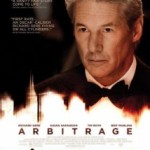 Arbitrage first endears us to a character, then leads us to revile him. Cold, calculating, Robert Miller played by Richard Gere tries to extract himself from a self-made mess in the process harming both finances and family. The mystery is not so much how did this happen, but how will Miller extract himself from self-made chaos. We come to loathe the man, thinking “What did he expect?!” And then we look in the mirror, seeing only our reflection, and we know.
Arbitrage first endears us to a character, then leads us to revile him. Cold, calculating, Robert Miller played by Richard Gere tries to extract himself from a self-made mess in the process harming both finances and family. The mystery is not so much how did this happen, but how will Miller extract himself from self-made chaos. We come to loathe the man, thinking “What did he expect?!” And then we look in the mirror, seeing only our reflection, and we know.
Out of the Furnace begins and ends with “Release” a song from the rock band Pearl Jam. The song exactly 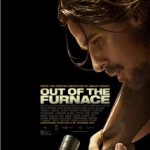 mirrors each character’s life. Each person is looking for liberation from the pain of life. Casey Affleck plays a veteran who fights bare-knuckle bouts for money; his anger is seen in every punch he throws. Christian Bale is the older brother whose incarceration after a DUI fatality crushes his spirit. Willem Defoe promotes all types of under-the-table, off-the-books money-making schemes but is unable to make himself profitable without being unethical. Woody Harrelson dominates his world through absolute control but in the end, longs for death for release.
mirrors each character’s life. Each person is looking for liberation from the pain of life. Casey Affleck plays a veteran who fights bare-knuckle bouts for money; his anger is seen in every punch he throws. Christian Bale is the older brother whose incarceration after a DUI fatality crushes his spirit. Willem Defoe promotes all types of under-the-table, off-the-books money-making schemes but is unable to make himself profitable without being unethical. Woody Harrelson dominates his world through absolute control but in the end, longs for death for release.
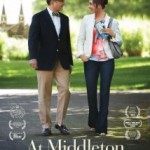 At Middleton speaks truth with an honest, soft voice. Tension abounds within a comedy where Edith (Vera Farminga) and George (Andy Garcia) escort their two children to a college visit. Their respective spouses at home, Edith and George discover lessons they never learned in university. Not to be missed is the scene where the two parents offer the drama club a lesson students will never forget; nor will we. At Middleton asks us to consider, “Can a moment of joy be salve to years of pain?”
At Middleton speaks truth with an honest, soft voice. Tension abounds within a comedy where Edith (Vera Farminga) and George (Andy Garcia) escort their two children to a college visit. Their respective spouses at home, Edith and George discover lessons they never learned in university. Not to be missed is the scene where the two parents offer the drama club a lesson students will never forget; nor will we. At Middleton asks us to consider, “Can a moment of joy be salve to years of pain?”
Dallas Buyers Club. Will, determination, and anger can drive a person to overcome insurmountable odds, helping others in the process. I am then driven to ask myself questions. Should it matter whom I help because of who they are? Should I circumvent ethical boundaries for a good cause? Should I ally myself with anyone with whom I share the same mission? Should I be more concerned about peoples’ views of me or how people view those I help? Should I do good because of compassion or expediency?
helping others in the process. I am then driven to ask myself questions. Should it matter whom I help because of who they are? Should I circumvent ethical boundaries for a good cause? Should I ally myself with anyone with whom I share the same mission? Should I be more concerned about peoples’ views of me or how people view those I help? Should I do good because of compassion or expediency?
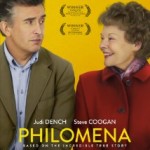 Philomena A simple woman. A simple faith. A simple solution to an impossible problem. Helped to find her adopted son by an atheistic journalist, Philomena’s plain belief is precious. Forgiving those who took her son from her, the atheist says, “It’s that simple? I could never do that.” Philomena remonstrates her helper with the admonition, “You think this is easy for me? It is not. Your hatred must be exhausting.”
Philomena A simple woman. A simple faith. A simple solution to an impossible problem. Helped to find her adopted son by an atheistic journalist, Philomena’s plain belief is precious. Forgiving those who took her son from her, the atheist says, “It’s that simple? I could never do that.” Philomena remonstrates her helper with the admonition, “You think this is easy for me? It is not. Your hatred must be exhausting.”
August: Osage County. “Life is long,” says T.S. Eliot. Beverly Weston (Sam Shepard) agrees and cuts his 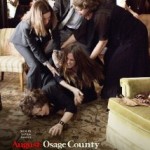 short. “I may have to do some other things I’m not proud of because life just treats you like that.” So says every character in a play-turned-film where a family spends one long funeral over a few short days. “Good thing we can’t judge the future. We would never get out of bed.” So we ask, if we take everything we want, what happens when you get everything you want? The moral center to the film, Johanna, a Native-American woman, is the little seen, constant presence in a home where there is always war and never peace.
short. “I may have to do some other things I’m not proud of because life just treats you like that.” So says every character in a play-turned-film where a family spends one long funeral over a few short days. “Good thing we can’t judge the future. We would never get out of bed.” So we ask, if we take everything we want, what happens when you get everything you want? The moral center to the film, Johanna, a Native-American woman, is the little seen, constant presence in a home where there is always war and never peace.
Intense movies make me tense because they create tension. We are fallen, finite, and fragile in a world needing wholeness.
[Next Week, Part Two, “There are other movies which haunt me for days on end. Why? Mystery. . . . ]
Mark counts dramatic films as his favorite genre. As long as we live in this life we will face the mirror of tension. Dr. Mark Eckel teaches tension between good and bad, sin and salvation, dignity and depravity at Capital Seminary & Graduate School.
Photo credits: Mirror–https://www.awakeat2oclock.com/; all others, imdb.com
[1] See my essay entitled “Tension”: https://warpandwoof.org/biblical-theological/tension/

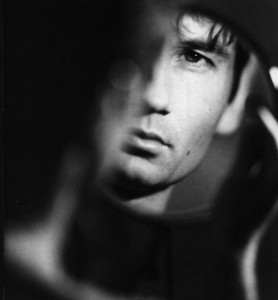
I’m so glad you liked OUT OF THE FURNACE. That was one of my favourite movies last year and it seems like no one else liked it.
Things are black and white for God. But we humans have a hard time seeing black and white, sometimes. And it gets difficult to relate to people if we try to see only in black and white. The best way to converse with people is to learn from them, and hopefully teach them a thing or two as well. You can’t do this if everything is black and white in your mind. There is no room to grow.
Mind you, I do not critique the idea that black and white are reality. On the contrary, I believe firmly in the absoluteness of black and white. I am merely making the same assertion you make: we are limited by our humanness. Things are not always cut and dry. They simply aren’t. Certainly for God they are. But He is omnipotent, omniscient, and omnipresent. He is the very maker of that which we can know about. He sees what we cannot. His ways are not ours, nor ours His (Isa. 55:8). So as humans, we must be understanding and willing to consider. Not necessarily accept, but consider.
Besides, the greatest truth in the world is not that black and white exists or even that God sees fully what is black and white. The greatest truth is that, despite all of the black, God has mercy upon us. Thank you for your grace, LORD.
I enjoyed the article; thank you!
I believe the least suprising bit is the picture of David Duchovny on the top.